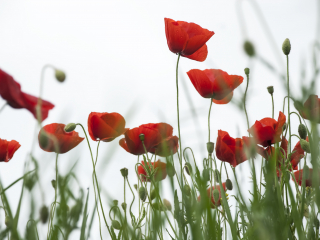At a time when our country is facing a battle of a different kind, and we are finding ourselves in unfamiliar circumstances, it is fitting that we take the time to remember the sacrifices of those who have served and died in war and the very unfamiliar circumstances they encountered in doing that.
Anzac Day unifies us in the commemoration of Australians who served and died in war or on operational service past and present. It is important for us to reflect on their sacrifices, and at the Queensland Audit Office (QAO) we are honoured and proud to remember those among them who work or have worked in our office.
Anzac Day represents Australia’s first major involvement in World War I, when Australian and New Zealand troops landed on the Gallipoli shore on 25 April 1915. The troops were part of a campaign to capture the Gallipoli Peninsula and open the Dardanelles strait. Their efforts would allow allied troops to travel through the strait and capture Constantinople (now Istanbul), the Ottoman Empire capital. By day’s end on 25 April 1915, there were 2,000 Australian and New Zealand troops who had been killed or wounded. When the Gallipoli campaign finished at the end of 1915, more than 10,000 Australian and New Zealand Army Corps (ANZACs) had died. This included more than 8,000 Australians.
While the Gallipoli landing is still at the heart of Anzac Day commemorations, the day now acknowledges those who served and made sacrifices in all the wars since.
In World War I, Australian troops also fought in Egypt, Palestine, and on the Western Front. Among them were 3 men who went from being audit clerks to soldiers on the Western Front:
- Edward David 'Ted' Smout joined the army in September 1915 as one of the first to enlist. He served as a Corporal on the Western Front and returned to the audit office in September 1919. In 1978, Ted was awarded the Medal of the Order of Australia. In 1998, he was made a Chevalier (Knight) of the Legion d'Honneur, France's highest honour. If you are ever visiting Redcliffe, you can take a drive or walk across the Ted Smout Memorial Bridge, named in his honour.
- Francis Edric 'Ric' Huntington enlisted in April 1916. He went to the Western Front and fought in Ypres, Belgium. In 1917 he was promoted to Corporal, before tragically dying in action in the Field of Flanders on 31 July 1917. Ric is commemorated in memorials in Australia, and on the Menin Gate Memorial in Ypres, Belgium.
- Frederick Arthur James Carter enlisted in January 1918 as a Gunner, served bravely on the Western Front and returned to Australia in July 1919. He worked with the audit office until December 1920.
Australia initially fought in World War II campaigns across Europe, the Mediterranean, and North Africa, and then later in the Asia-Pacific. 20 men from our office, including some on secondment to or from the office, left for military service during this period. Additional staff undertook lengthy periods of national training. Those who had worked in the office and traded in their roles as inspectors of accounts and audit clerks to serve in the navy, army, and air force included:
- Ronald John Henry Adcock
- Frank Brett
- Roland Henry Buchan-Hepburn
- John F. G. Cassidy
- Keith Collins
- Leo Vincent Cruise
- Colin Roy Douglas
- William Robert Forgan-Smith
- Wilfred Laurence Hallam
- Warwick Gordon King
- Colin Douglas McIntyre
- Geoffrey Lloyd Moore
- Alexander Owen Morris
- William Joseph Mullen
- Edwin Albert Norman
- Arthur J. Peel
- Peter Danby Steele
- Robert Frances Ward
- John William Whitaker
- Robert Francis Alfred Ward.
3 of the men who served in the Royal Australian Air Force (RAAF) during World War II were awarded the Distinguished Flying Cross and 2 were mentioned in despatches during service with the Royal Australian Navy (RAN).
As with any war, the office lost 2 of its own. Ronald John Henry Adcock (RAAF) was killed in action in Burma and Ronald Henry Buchan-Hepburn (RAAF) was reported missing in action after a battle over the English Channel. They are both commemorated at the Australian War Memorial, Roll of Honour.
Australia has continued to play a part in war and peace-keeping efforts around the globe, from Korea to Vietnam, Iraq, Afghanistan, East Timor, Syria, Libya, and Nigeria. There are people in our office who have been part of these campaigns, and our current group of employees includes ex-serving members and current reservists.
And to those in our office who are currently serving, we thank you.
Light up the dawn.
Lest we forget.
References: Australian War Memorial, Commonwealth War Graves Commission, Department of Veterans Affairs, Monument Australia, The Oxford Companion to Australian Military History, Virtual War Memorial Australia, The Plain Truth: A History of the Queensland Audit Office by Robert Longhurst.

